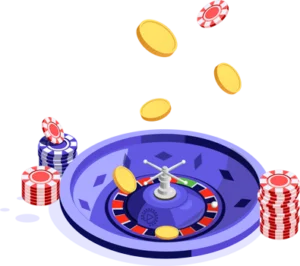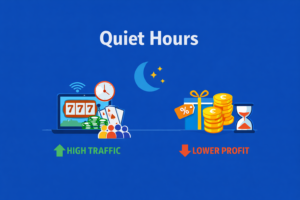Betting Systems for Craps and How They Work

Craps is a dynamic and thrilling casino game, renowned for its fast-paced action and the collective excitement that builds around each roll of the dice. While at its core a game of chance, many players are drawn to the idea of employing betting systems to structure their play, manage their bankroll, or even attempt to capitalize on perceived trends. These systems introduce a layer of strategy to the inherently unpredictable nature of the game.
Before delving into specific systems, a foundational understanding of Craps mechanics is crucial. Players take turns rolling two dice, a role known as the “shooter.” Other participants wager on the outcomes of these rolls. The most fundamental bets are the Pass Line and Don't Pass Line. A Pass Line bet wins if the shooter rolls a 7 or 11 on the initial “come-out” roll. It loses if a 2, 3, or 12 (known as “craps”) is rolled. If any other number (4, 5, 6, 8, 9, 10) is rolled, that number becomes the “point.” For the Pass Line bet to win, the shooter must roll the point again before rolling a 7. Conversely, the Don't Pass Line bet largely mirrors the opposite, winning on a 2 or 3, pushing on a 12, and losing on a 7 or 11 on the come-out roll.
Over time, various betting systems have gained popularity among Craps enthusiasts, each with its own rationale and perceived benefits. Let's explore some of these common approaches.

The Hot & Cold Betting System
This system is predicated on observing a shooter's performance and attempting to “ride” what appear to be streaks. If a shooter consistently rolls winning numbers, indicating a “hot streak,” players employing this system will place their bets on the Pass Line, hoping the favorable run continues. Conversely, if a shooter frequently rolls losing numbers, signaling a “cold streak,” players will switch to the Don't Pass Line, anticipating the cold spell to persist.
The intuitive appeal of this system is strong; it feels logical to follow what seems to be working. However, it's vital to remember the gambler's fallacy: past outcomes have no bearing on future independent events. Every dice roll is a distinct event, and the probability of rolling any specific number, such as a 7, remains constant regardless of previous results. While a shooter might indeed experience a lucky run, this system does not alter the fundamental house edge, which remains consistent for every wager placed.
The Rothstein System
The Rothstein System is a progressive betting strategy, sharing some similarities with a modified Martingale. Players begin by placing a single unit bet (e.g., $10) on the Pass Line. If they win, they collect their winnings and revert to a single unit bet. If they lose, the system instructs them to double their previous bet and add one unit. For example, a 1-unit loss would lead to a 3-unit next bet (1 doubled + 1). A subsequent loss would then require a 7-unit bet (3 doubled + 1), and so on, until a win occurs, at which point the player resets to a single unit bet.
The underlying principle is that a single win should recover all prior losses and generate a profit. While this can be effective in the short term, the exponential increase in bet size carries substantial risks. Players can quickly encounter table limits or deplete their bankroll, particularly during an extended losing streak. Like all progressive systems, it does not diminish the long-term house edge and can lead to significant losses if luck does not turn in the player's favor.
The Watcher System
The Watcher System is a more cautious approach, where players refrain from betting until a specific pattern emerges. The core idea is to observe the shooter until they achieve four consecutive Pass Line wins. Once this “hot streak” is identified, the “watcher” then places a bet on the Don't Pass Line, often a fixed amount. The rationale behind this is the belief that the odds of a shooter rolling five consecutive Pass Line wins are statistically low (approximately 31:1), suggesting a reversal is imminent.
However, this system is fundamentally flawed due to the gambler's fallacy. The dice possess no memory. The probability of rolling a Pass Line win on the fifth roll is precisely the same as it was on the first, second, third, or fourth roll, irrespective of previous outcomes. Betting against a “hot streak” simply means betting against the natural probabilities of the game, which slightly favor the Pass Line (around 50.7% for Pass Line vs. 49.3% for Don't Pass Line, accounting for pushes). This system offers no mathematical advantage and can lead to frustration and losses if the streak continues.
Hedge Betting
Hedge betting in Craps involves placing multiple wagers to cover various potential outcomes, with the aim of reducing risk or securing a small return. A common example is simultaneously betting on both the Pass Line and “Any Craps” (a bet that the next roll will be 2, 3, or 12). The intention is that if the shooter rolls craps on the come-out roll, the “Any Craps” bet wins, thereby offsetting the loss on the Pass Line.
While this strategy might appear to minimize risk, in practice, hedge betting often results in guaranteed losses over time. Each individual bet in Craps carries a house edge. By placing multiple bets that cover each other, you are essentially paying the house edge on both wagers simultaneously. For instance, if you bet $10 on the Pass Line and $1 on Any Craps, you are risking a total of $11. If a 7 or 11 is rolled, you win $10 on the Pass Line but lose $1 on Any Craps, resulting in a net gain of $9. If a 2, 3, or 12 is rolled, you lose $10 on the Pass Line but win $7 on Any Craps (typically a 7:1 payout), leading to a net loss of $3. Over numerous rolls, the combined house edge on both bets will erode your bankroll more rapidly than if you had simply placed a single bet.
Craps betting systems can certainly add an engaging dimension to the game, providing players with a structured approach to their wagers. Nevertheless, it is crucial to understand that no system can alter the inherent house edge or guarantee long-term profits in a game of chance like Craps. They serve as tools for bankroll management and strategic engagement, rather than methods to overcome the game's fundamental probabilities.
For those interested in exploring Craps and other exciting live casino games, we recommend seeking out reputable online casinos. Many platforms offer a wide array of bonuses and flexible payment options to enhance your gaming experience. Always remember to gamble responsibly and within your financial means.
Most Recent News
Get the latest information








